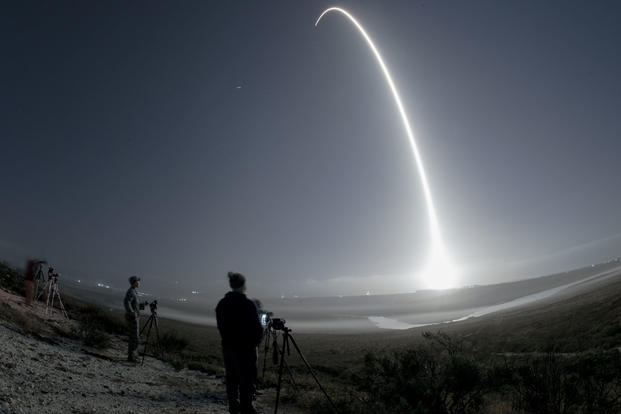The U.S. military is poised to launch a secret payload, code-name Zuma, this weekend on SpaceX's Falcon 9 rocket, if the weather doesn't get in the way.
California-based SpaceX, headed by Elon Musk, announced via Twitter the launch -- which has been repeatedly delayed since November -- has been pushed back to Jan. 7.
"Team at the Cape completed additional propellant loading tests today. Extreme weather slowed operations but Falcon 9 and the Zuma spacecraft are healthy and go for launch -- now targeting January 7 from Pad 40 in Florida," the company tweeted Thursday, referencing Cape Canaveral, Florida.
The mission, Zuma, remains shrouded in mystery. The payload is some sort of "spacecraft" that will conduct a low-Earth orbit, according to the mission's press release. Indeed, it's not even clear which government agency is responsible for the effort.
Related content:
- Old School Air Force Can't Handle 'Space Corps' Challenge?
- SpaceX Wins Air Force GPS III Satellite Launch Contract
- Air Force Seeks Next-Gen Launch Vehicles for Space Missions
In September, the U.S. Air Force's covert X-37B Orbital Test Vehicle hitched a ride for the first time aboard SpaceX's Falcon 9 rocket, marking the fifth mission for the experimental craft.
The company also is planning to launch its Falcon Heavy rocket soon.
The heavy-lift booster rocket will make its operational, maiden flight sometime this month. Musk intends to send his 2008 Tesla Roadster deep into space atop of the rocket, the CEO announced Thursday via Instagram.
If the launch of the Falcon Heavy is successful, it will make the rocket the most powerful in the world thanks to its 27 Merlin engines, which produce roughly 5.1 million pounds of thrust.
That is "equal to approximately eighteen 747 aircraft. Only the Saturn V moon rocket, last flown in 1973, delivered more payload to orbit," according to SpaceX.
Falcon Heavy is scheduled to lift off from the Kennedy Space Center's launch complex 39A, originally built for the historic Apollo missions.
-- Editor's note: A previous version of this story incorrectly reported the U.S. National Reconnaissance Office was responsible for the mission. The story was updated to correct this reference.
-- Oriana Pawlyk can be reached at oriana.pawlyk@military.com. Follow her on Twitter at @Oriana0214.











